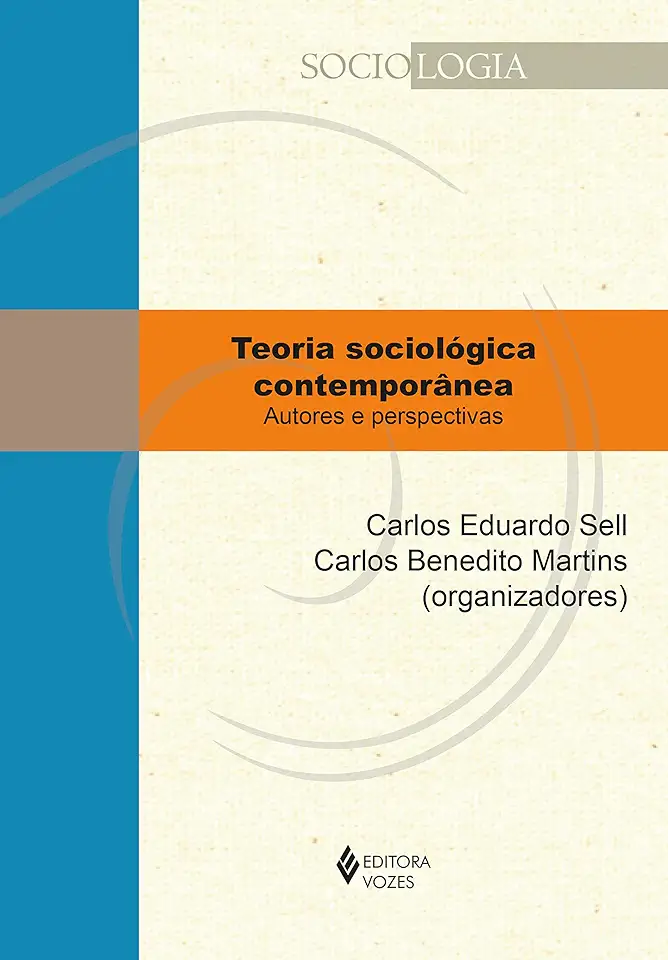
Contemporary Sociological Theory: Authors and Perspectives - Martins, Carlos Benedito
Contemporary Sociological Theory: Authors and Perspectives
A Comprehensive Guide to Understanding the Major Sociological Theories of Our Time
In the ever-evolving field of sociology, staying abreast of the latest theories and perspectives is crucial for gaining a deeper understanding of society and human behavior. "Contemporary Sociological Theory: Authors and Perspectives" by Carlos Benedito Martins offers a comprehensive exploration of the most influential sociological theories of our time, providing readers with a solid foundation in sociological thought.
Key Features:
In-depth Analysis: Martins delves into the intricacies of each theory, offering a detailed examination of its key concepts, assumptions, and implications.
Diverse Perspectives: The book covers a wide range of theoretical approaches, from classical sociological theories to contemporary postmodernist perspectives, ensuring a well-rounded understanding of the field.
Engaging Writing Style: Martins presents complex theories in a clear and engaging manner, making the book accessible to both students and scholars alike.
Real-World Applications: The book illustrates how sociological theories can be applied to real-world issues and phenomena, demonstrating their practical relevance.
Chapter Summaries:
Chapter 1: Introduction to Sociological Theory
- Provides an overview of the nature and significance of sociological theory, highlighting its role in understanding social phenomena.
Chapter 2: Classical Sociological Theories
- Explores the foundational theories of sociology, including those proposed by Karl Marx, Max Weber, and Émile Durkheim, and their enduring influence on the discipline.
Chapter 3: Structural Functionalism and Systems Theory
- Examines the structural functionalist perspective, which views society as a system of interconnected parts, and the systems theory, which emphasizes the self-organizing and adaptive nature of social systems.
Chapter 4: Symbolic Interactionism and Ethnomethodology
- Delves into the symbolic interactionist approach, which focuses on the role of symbols and interactions in shaping human behavior, and ethnomethodology, which studies the methods people use to make sense of their social world.
Chapter 5: Conflict Theory and Critical Sociology
- Explores conflict theory, which emphasizes the role of power and conflict in shaping society, and critical sociology, which challenges traditional sociological theories and advocates for social change.
Chapter 6: Feminist Theory and Gender Studies
- Examines feminist theory, which analyzes the social construction of gender and its impact on society, and gender studies, which explores the intersections of gender, race, class, and other social categories.
Chapter 7: Postmodernism and Poststructuralism
- Introduces postmodernist and poststructuralist theories, which challenge traditional notions of truth, reality, and objectivity, and their implications for sociological research and theory.
Chapter 8: Conclusion: The Future of Sociological Theory
- Reflects on the current state of sociological theory and speculates on its future directions, emphasizing the need for continuous theoretical development and innovation.
Why You Should Read This Book:
"Contemporary Sociological Theory: Authors and Perspectives" is an essential resource for anyone seeking to deepen their understanding of sociological theory. With its comprehensive coverage, engaging writing style, and real-world applications, this book is a must-read for students, scholars, and anyone interested in gaining a deeper understanding of society and human behavior.
Order your copy today and embark on a journey through the fascinating world of contemporary sociological theory!